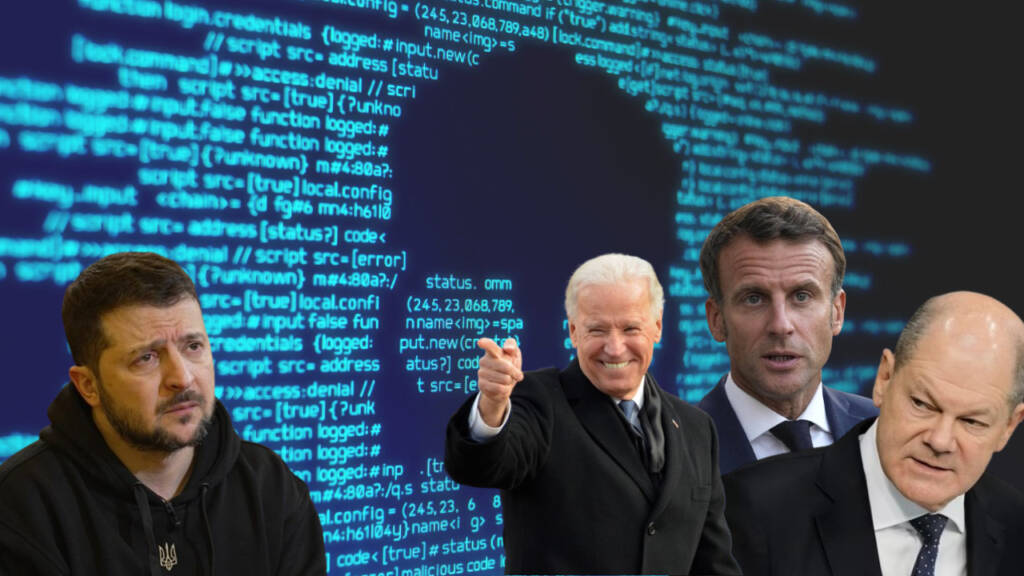In a chilling cyber saga that unfolded over the span of a year, Russian hackers executed a stealthy invasion into the core of Kyivstar, Ukraine’s telecommunications juggernaut. This covert operation, concealed in the digital shadows since May of the previous year, recently erupted into a full-blown assault, leaving chaos and confusion in its wake. The attack paralyzed services for a staggering 24 million users on December 12, marking one of the most audacious cyber onslaughts since Russia’s invasion of Ukraine nearly two years ago.
But what’s noteworthy here is the timeline. Why the revelation after a suspenseful two-year wait?
As the war inches towards its conclusion and Ukraine remains in aid limbo, the timing of this disclosure raises eyebrows. It’s like uncovering a hidden plot twist just as the climax unfolds—why now?
Join us on Telegram: https://t.me/tfiglobal
Illia Vitiuk, head of Ukraine’s Security Service cyber department, described the hack as “disastrous” and aimed at delivering a psychological blow while gathering intelligence. The attack serves as a stark warning to the West, highlighting that even well-protected entities like Kyivstar, known for substantial cybersecurity investments, are vulnerable.
The reason for this prolonged wait is potentially a calculated maneuver, reminiscent of a geopolitical chess move– the gradual withdrawal of robust Western support in the face of Russia’s advancing military presence. European leaders, once staunch advocates for Ukraine’s defense, have become increasingly pessimistic about the country’s ability to repel Russian forces and reclaim its eastern territories. This skepticism has cast a shadow over the aid packages, shaping them in accordance with evolving geopolitical realities and a delicate global balance of power and to keep the aid coming, Ukraine has played this strategic move.
For instance, initially earmarked at an ambitious $40 billion, President Biden’s plan to bolster Ukraine’s position against Russia has undergone a significant downsizing, now standing at a more modest $20 billion. The recently announced security assistance package for Ukraine, valued at up to $250 million, from the Defense Department, underscores the complexity of international responses to conflicts. The package was ridiculously small for a country undergoing a severe war. It reflects that the U.S. does not plan to provide any further aid to Ukraine in the ongoing crisis.
Read More: US’ latest financial package for Ukraine is ridiculously small
In a diplomatic twist, France has masterfully played the aid game. France suggests a peculiar solution – why not set up industries on your turf? A move that screams diplomatic finesse, it’s akin to saying, “Sure, we’ll lend a hand, but how about you do the heavy lifting?” This diplomatic waltz, however, might be more smoke and mirrors than substance. It’s a diplomatic masterpiece, a delicate balance of promises and implausible proposals.
Read More: France is Breaking Up with Ukraine with the Corniest Breakup Line
Coming to Germany, in a recent statement, Germany’s Foreign Minister, Annalena Baerbock, openly acknowledged certain deficiencies in advanced German systems supplied to Ukraine. She disclosed that the Leopard 1 tanks dispatched to Ukraine are outdated and not fully operational. This revelation raised concerns about Germany’s reluctance to approve the supply of Taurus long-range missiles. Germany literally admits that it is delivering “trash bags” to Ukraine.
Read More: “Not Really Functioning” Germany Admits it is Delivering Trash Bags to Ukraine
The shift in Western support is tangible, evident in the recalibration of Ukraine’s military strategy and diplomatic approach. Faced with dwindling assistance, Ukraine is compelled to adapt its tactics, underscoring diplomatic channels and strategic plotting. The reduction in military aid and financial backing reflects a pragmatic acknowledgment of the challenges Ukraine faces and a recognition that previous strategies may require adjustment.
Hence, the recent shift in Ukraine’s communication strategy, warning the West of potential cyber threats orchestrated by Russia, is an approach to scaremonger, as the credibility of these warnings comes into question.
Read More: Zelensky’s Crimean Daydream Meets German Tank Reality
Ukraine’s warnings are only an attempt to leverage fear to secure increased aid. Whether Ukraine’s warnings are viewed as genuine concerns or strategic gambits will impact not only the immediate aid it receives but also the broader narrative surrounding the ongoing crisis. The coming days will reveal the true extent of the cyber threats and the implications of Ukraine’s communication strategy on the diplomatic landscape. This is definitely going to be Ukraine’s last propaganda to prolong the war and gobble up Western Money as Ukraine is on the forefront of losing war.
Watch More:
